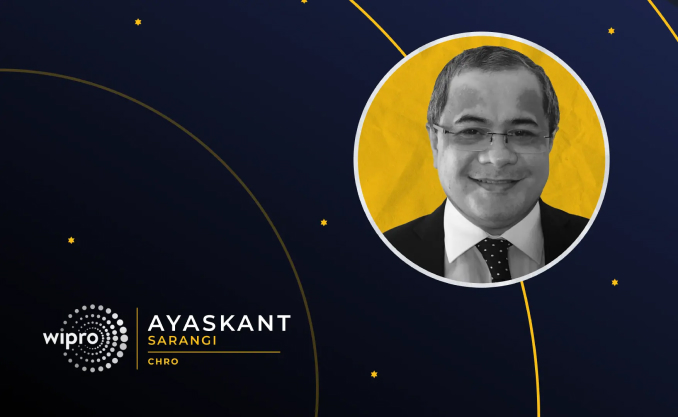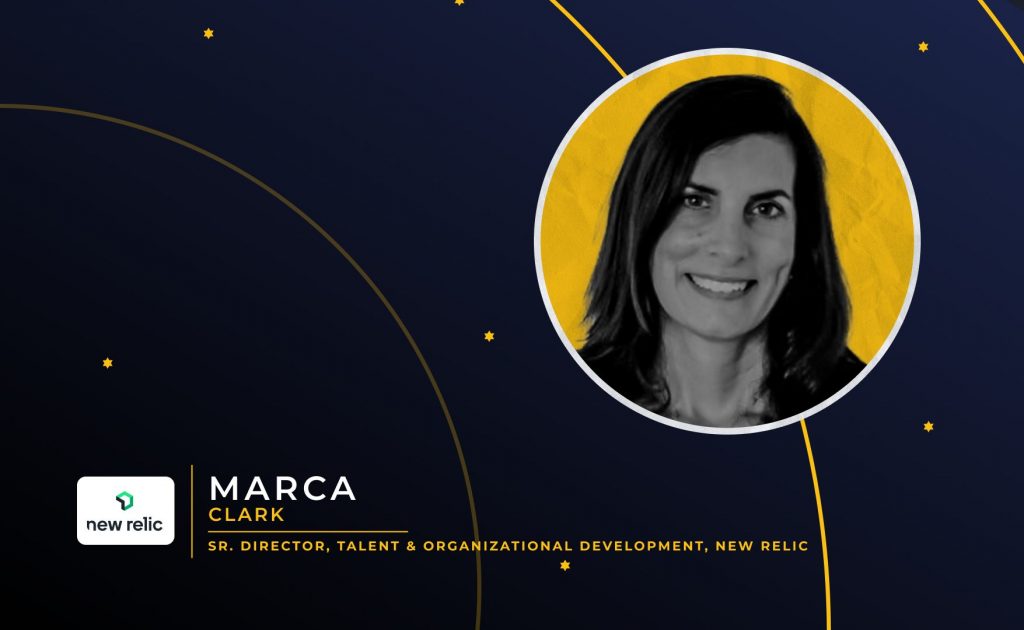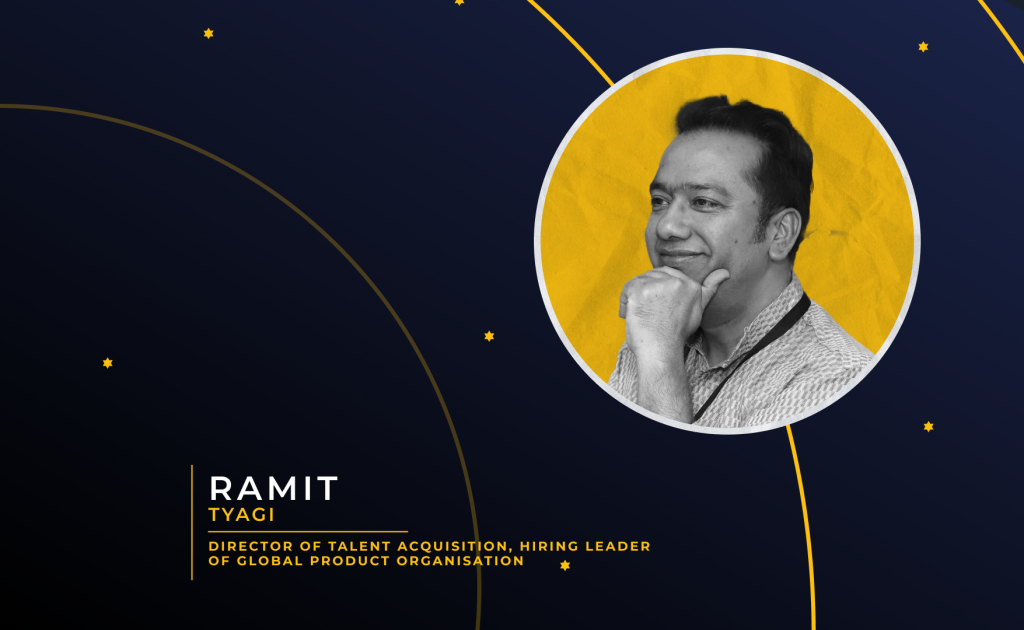With experience and passion for recruitment, Saaquib Dawoodani is now leading talent acquisition for the India business & supporting the India Product and Strategy teams in managing projects to successfully launch and scale Revolut in India.
Saaquib says," The most serious issue and the changing priority of candidates have been stability, which has become one of the most essential things that people look for now. because of the scare that we've all witnessed.”
Saaquib shares the must-have skills for a recruiter, the adaptability to kind of change in the business, the problem-solving skill set of kind of understanding situations and figuring out what needs to be done at that specific point in time, and relationship building.
What inspired you to pursue a career in HR?
I started as a product manager at HDFC Bank, where I worked for three and a half years before deciding to try something different. I also wanted to make some sales because that’s where you truly learn about the on-the-ground industry. But I didn’t want to do banking sales, so I went into recruitment consultancy, a 50/50 mix of B2B sales and recruiting. I ended up liking recruitment more than the sales portion of the job, which is unusual because usually, people get into B2B sales ultimately if they’ve done some consulting on the B2B side.
But I prefer recruitment. So the fundamental task of meeting new people, understanding the human mentality, selecting the appropriate people for the right job, and eventually the simple satisfaction of landing someone their dream job. That, I believe, pushed me to consider it as a legitimate professional alternative. Despite getting an MBA in finance and starting my career as a product manager, I believe I fall somewhere in the middle. I’ve also heard that some of the top HR workers do not actually come from an HR background; rather, they come from extremely atypical backgrounds because if they worked in at least one other function, they understand the business far better than most other normal HR professionals. And that educates you more than anything else because if you’ve been there, you know what it’s like.
So I’ve done product, consulting, a little bit of business-to-business sales, and certainly a little bit of recruitment along the way. And having had the opportunity to work in various areas provided me with a better grasp of what the people function is all about, how recruitment works, why they make certain decisions, and so on. As a result, I chose recruitment or talent as a function. So it wasn’t by luck, but rather by design.
What are the trends you’re noticing in the talent market in 2023, and how are they impacting talent mobility?
As we all know, there is a lot of concern regarding the global recession, and things are moving slowly. Because of the significant layoffs, candidates are more likely to stay put if their jobs are safe and steady. And because of the large number of people who have been laid off or are actively looking for work for the sake of stability, most organizations that are recruiting have a large pool of candidates to select from. Now, most organizations who are recruiting aren’t really providing a significant salary increase, or perhaps because they don’t have to due to a supply-demand mismatch, such as the number of candidates available being too high vs the number of open jobs not being that many. So there’s no benefit to switching, in my opinion, where unless and until there’s anything massively major going on, most people are wanting to stay put for the time being as long as their jobs are safe.
There is a complete 180-degree turn. Back then, candidates demanded high compensation, and employers were willing to pay far more than usual in order to recruit the greatest employees. People were clearly loaded with the funding they had raised. Startups were freezing at ridiculous valuations and had that money to spend as well. The key difference now is that corporations can’t afford to pay so much, or would prefer not to want to spend such a large portion of their budget on employment unless it’s really necessary. So, I believe the bottom line is less appealing positions with much lower raises, which is also fair considering a market correction was expected.
We all knew that because companies were paying outrageous salaries a few years ago, there was a supply-demand imbalance, which is, I believe, the most serious issue and the changing priority of candidates has been stability, which has become one of the most essential things that people look for now. Because of the scare that we’ve all witnessed.
We keep hearing about hiring freeze everywhere. Why have things slowed down? What should candidates look forward to right now?
As previously mentioned, I believe it is a combination of several factors, including economic uncertainty, fear of a global recession slowing the market in general, decreasing cash flows, startups unable to raise fresh funding at the valuations they were a few years ago, and thus only raising if it is a must for survival, and with that, a priority for most is to simply sail through these difficult times.
Personally, I believe things will improve in the months to come, primarily because most startups that seek growth will need talented people to help them get there, and I believe two things will happen: companies will have to be much more strategic in terms of which roles to hire for when to do so, how much to pay, and so on. You’ll notice a shift in trend where even companies raising new funds won’t go all berserk with hiring a tonne of people. Furthermore, at some point, candidates will realize that not many organizations will offer a huge amount of hikes, so the average% salary increase will decrease and people will start accepting the new norm.
Are you somebody who vouches for work from home or are you a flagbearer of working from the office?
I prefer working from home. I think obviously you can’t comment on what’s best for everyone. It’s to each their own. I personally prefer three days from the office and two days from home. Sort of a structure. I think it works for us at Revolute, wherein we are a hybrid company, so you can literally work from wherever you want. So at times, I’ll work from coworking spaces, at times I’ll work from cafes. At times I’ll work from fence places, my own place, or wherever I feel best comfortable. And I think that helps because you’re mentally in the right space and as long as you feel good mentally, I think that should be fine. I think this is one of the few positive consequences because five years back if anybody could have imagined the hybrid work model, that shift of mindset has actually worked for a lot of us.
In very simple terms, how can recruiters identify the best talent in the market today? What are your priorities in this pursuit?
The thing with recruiting is that virtually anyone can locate qualified candidates. The ability to find the crème de la crème, or as they say in recruitment, the purple squirrel, distinguishes exceptional recruiters from all other recruiters in the market.
I prioritize understanding of the role from hiring managers, we call this the ‘intake call’ and then figure out what the talent pool looks like, identify the candidates with the most ‘green flags,’ rather than just a ‘list of folks who meet the criteria,’ and then try to reach out to the majority of these first and convince them for the role.
How do you prioritize which roles to consider over others and how is the budget allocated?
Essentially, we analyze why this requisition or function exists in the first place. For example, what will the incumbent be held accountable for? Can the company survive without this hire? Or would we have a problem with business continuity if we didn’t have one for the specific position? Is it a legislative need for fintech or banks to have this position, or are we just having it for the sake of having it because it helps us perform better? Determine whether it is a new role, a replacement, or a backfill for someone who is about to depart, is leaving, or is going on long-term leave. And, of course, we understand, and if we have someone on the team who can temporarily manage this task for specific jobs.
If not, can we at least identify someone till a replacement is found? And then, after you’ve broken it down into these, you’ll have a pretty obvious path to prioritize in terms of the.
The company’s requirement. We divide it into P0, P1, and P2, with P0 having the greatest priority and P1, P2 being lower on the priority list. So every role is assigned that tag, and we begin working on prioritizing these roles at one point in time, usually in terms of budget allocation, I believe, again, it is divided into numerous subparts.
Regarding budget allocation, it is again divided into Market standards for various positions.
Talent pool available in that place – a shortage of talent would necessitate a somewhat greater allocation than usual. The positions’ seniority The significance of these responsibilities in the business, Internal salary criteria for various roles, and so on.
As a result, particular ranges are assigned to each function, each specialization, each grade/seniority level, and each city/country.
What are your thoughts on some of the traits that a good recruiter should have?
Many of my Founder friends believe it is acceptable to bring in anyone who can hire to do the TA job, and we frequently argue over why it is such an important role for their organization’s long-term growth objectives. As I previously stated, practically anyone can hire and it’s not a difficult job on paper, but I’ve found that some of the finest recruiters are those who have exceptional interpersonal skills, are fantastic at expanding their network and maintaining relationships with applicants – as if people would listen to them simply because it’s them, regardless of the post they’re pitching, great salespeople are somewhat contentious, they have excellent persuasion abilities, are excellent negotiators, can manage difficult situations and cope with pressure, and can handle the unpleasant conversations with ease and one of the most underrated is that they are not intimidated by the seniority or title of the person with whom they are conversing, they can hold their own and are usually fair and transparent.
On an individual level, what do you do to ensure everyone in your team feels included?
I believe it varies from individual to person. If you ask me, I’m someone who is quite close to the people with whom I work. I believe that on my team, I will be someone who will be checking in on folks virtually every day and doing one-on-ones almost every day. Again, as long as people can join and there are no serious difficulties with what is going on. We’ll designate a friend to each individual for their first couple of months so they know their way around.
One thing I learned from one of my friends in the HR fraternity, who I heard speak at one of the events, is that whenever he arranges a meeting, one of the things he never does is try to start with a solution to the problem that he’s going to talk about. He’ll give the floor to the team and listen to their ideas first, so that when he talks about the solution. When you talk about the answer, most people will simply not be interested. That’s fine; let’s just do it. So one of the things I started doing was to open the floor to individuals and learn what they thought should be right, if not at a tail level, at least on a one-on-one level, because not everyone thinks the same way.
What exactly is a buddy program?
So we have a buddy program wherein anybody any new joiner who comes on board even before they join on our system, we’ve allocated a buddy from the team, essentially someone who’s a peer who works closely with them and helps them get through the initial few days of struggling, of understanding the tools and platforms and people in the team, the hierarchy, the kind of workload they share, the kind of rapport they have. Between the direct reports in the team and the team managers, et cetera.Essentially a friend who’s there for you, who takes care of your initial few months of casual training or informal training, if I can say, who can help you with formal stuff as well, and professional stuff, but on the other hand, helps you kind of get through the early days of a new job.
Essentially the new struggles of a new job. So that’s something that massively helps because usually when you join a new company, you don’t have too many people, you know, in most cases, you may not know anybody other than NHR or recruiter and the hiring manager. So people struggle with obviously making new friends and connecting with them. And they have to figure out who’s who, who does what’s, the seniority, someone’s what is their title, et cetera. And most people have to do a lot of this work by themselves and they end up wasting a lot of time and energy it’s not even great because they have to write cold outreaches over Slack or emails, etc. The Buddy essentially helps them get through all of that. And we support them by creating an entire process of what they should be taking care of even before someone joins.
With the rise of AI and automation, do you see HR roles being replaced by automation or do you think technology will enhance the role of HR professionals?
I think people are just a bit too scared about how especially generative AI has gone about in the last couple of months. But I think it, it massively helps, you know, the HR professionals and overall the entire talent industry as a whole. I’ve seen a lot of generative AI models getting developed that help recruiters and HR folks come up with stuff that would take a lot of time and effort to actually kind of perform. Obviously, there are downsides to that as well. There are duplication issues, there are standardization issues. There’s a worry about candidates coming up with, say, home assessments during the interview process, which are kind of generated by Charge, GPT, et cetera. So there are challenges there.
But I think at an overall level, I think it’s massively helped. So there are generative AI tools that can help you to kind of creative content for job descriptions, create learning and development policies, create competency guides and frameworks, create candid profiles or archetypes to look for when recruiting for a specific role, and also come up with how you can get throughout of negotiations. So you can just basically come up with all sorts of solutions through that. And that’s overall, at an industry level, I think it’s massively helpful. But at the same time, I think HR being HR requires human intervention. I don’t think AI is going to impact people’s jobs to the extent
What is your advice on the skillsets required to move up the ladder in the HR domain?
I feel if you’re in recruitment or the overall people space, the hard skills are pretty obvious and there’s no rocket science to that, wherein, say, for example, if you are a recruiter, you need to be good at candidate management, stakeholder management, sourcing profiles, speaking to people, meeting with people, being a bit extroverted, et cetera. Those are the obvious ones. I think most people struggle with the softer side of the skill set.
The top five skills on the softer side, I think in my opinion, would be communication. And obviously, this is as per the report as well, the adaptability to kind of change in the business, the problem-solving skill set of kind of understanding situations and figuring out what needs to be done at that specific point in time, and relationship building. And I think, lastly, business acumen if you have the overall understanding of where the business is moving, what they need, and why they need what they need.


































